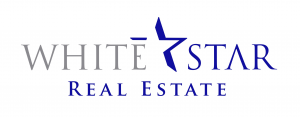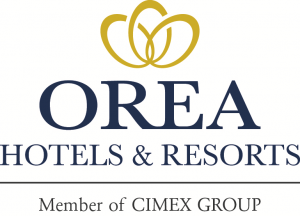Main task of the Family Office
20.01.2015Company: Amcham
The primary objective of the Family Office is to care for a family. The care is based on a holistic approach.
Family Offices primarily focus on the management and comprehensive administration of a family’s wealth, create tools that allow the family to efficiently protect and develop its assets, help plan individual key activities, provide tax, accounting and legal advice, assist with property management, plan philanthropic and similar activities.
Until recently, Family Office services have not been in great demand in the CEE region as it takes many years for a necessary environment to develop. However, today, the founders of family businesses gradually find themselves in a situation when they plan their retirement and must seriously consider issues such as asset consolidation, management simplification, setting up adequate tax regimes, as well as one of the most difficult decisions – choosing a suitable form and method of transferring the assets to the next generation.
The role of the Family Office is to be an active partner and a co-organiser of this process.
Developed markets distinguish between a single-family office and a multi-family office. The difference is obvious. In the first case, all services are directed at one family, while in the other case, several families are serviced by the Family Office, which provides greater efficiencies by spreading the costs for the services across more than one family.
Globally, a very dynamic increase can be seen in the demand for services from Family Office type institutions. This is a result of increased wealth accumulated by new families arising from factors such as economic globalisation and the development to new technologies. An efficient asset management then requires truly professional expertise and resources that are quite hard to create within one family.
The Family Office constitutes a team of experts who have one objective: creating an environment in which the wealth will not lose its value despite changes between generations and external factors, such as various legislative and tax amendments.
How do Family Offices help their clients?
Fundamental activities of the Family Office include:
• Creating and subsequently managing a suitable corporate structure (such as a family holding company and foundation) that would be in charge of the family business and financial assets;
• Wealth management, representation and active support provided to the family in exercising their shareholder rights, dealing with tax and legal issues related to the assets, financial investment management, communication with private banks and asset managers, immovable asset management, consolidation of all positions into one unit, full and regular reporting on the state of the family’s assets;
• Risk management;
• Ongoing tax, accounting and legal consultancy both at the level of the structure and related to planned business transactions;
• Developing internal rules and processes that create space necessary for defining the tasks and benefits of individual members of the family; in the long term, clear rules help keep healthy communication environment within the family and the community around it;
• Charity and philanthropy; assistance in finding suitable partners with whom the family could share their name.
Asset planning
One of the Family Office’s key activities is to help the family in the process, starting with planning and structuring, asset creation, to asset transfer to the next generation.
From a long-term perspective, wealth planning is an exceptionally important process. At the same time, increasingly stricter regulations (involving tax and accounting changes) place greater demands on families in terms of knowledge of tax and legal rules as well as the ability (and experience) to somewhat anticipate such changes.
The main objective of the Family Office is to eliminate as much as possible the threats that could have an adverse impact on the family’s business and assets.
One of the threats also is trans-generational wealth transfer. History shows that the essential part of wealth is built in one generation. At the same time, statistics reveal that 60% of the wealth gradually disappears during the third generation, primarily due to the fact that the family has not paid sufficient attention to this issue.
Other threats, which the family does not realise or has no reason to attend to, include events such as those associated with asset freezing (for any reason), premature death of a key member of the family and related probate proceedings (which can take longer than expected due to external factors), marriage disputes and disputes regarding asset transfer. These risks and, to a certain extent, nervousness of the family and the community around it can be reduced by clear, pre-defined rules.
Succession planning
In a family’s life, succession can represent one of major challenges that affect its life for many years. Succession planning directly involves the family, in terms of defining a family’s new leader after the original head of the family decides to take a back seat. However, this also involves changes in companies in which the current leader is active. In this respect, the Family Office can give plenty of support.
In a simpler case, the leader is a member of the family and his future role was naturally defined long ago. In a more complicated case, none of the children is suitable for the role or is willing to assume the role. Then it is up to the Family Office to facilitate, by agreement with the family, asset transfer to a suitable institution (such as a foundation or a family holding), define the terms of its operation, payments of income and individual responsibilities.
Reliable planning and ensuring continuity in family asset management is a primary precondition for preserving the value of the wealth and the control the family has over the wealth.
More about the mission
In building their wealth, families come into contact with various forms of corporate consultancy, private banking and similar services. They focus their attention mainly on the financial health of their companies, address their needs, take up new business challenges, or make their day by buying a property or yacht now and then. The experience shows that such decisions are usually adopted ad hoc by the family as necessary, depending on the current situation, without an effort to look at each transaction from a long-term perspective and within the context of the assets as a whole. Very often, the family relies on its immediate circle when conducting the transaction.
A family’s influence and power increase with its assets. This of course attracts various external factors that can, to a smaller or larger extent, start endangering the wealth.
Then, often after it has faced a particular problem, a smaller or greater risk, or after it just learns from the experience of others, the family finds out that its wealth that has been built for many years should be simplified and made more organised, that procedures should be set up to allow accumulating as well as efficiently protecting the wealth. Gradually, the family discovers that efficient asset management is not based on fast solutions but on incremental, systematic steps to arrange all of its assets.
The role of the Family Office is to help families with organising their assets, provide them with its know-how, arrange and organise all components so that the family obtains and sets up procedures for protecting it and developing its wealth.
Family Office services should not be viewed as a luxury toy. On the contrary, reasonable and qualified use makes these services an eminently practical guide and useful tool for preserving wealth across generations that are, from the perspective of a today’s family, yet to come.
Michal Šubín Head of Family Office
Telefon: +420 731 192 464
E-mail: michal.subin@rsm-tacoma.cz







